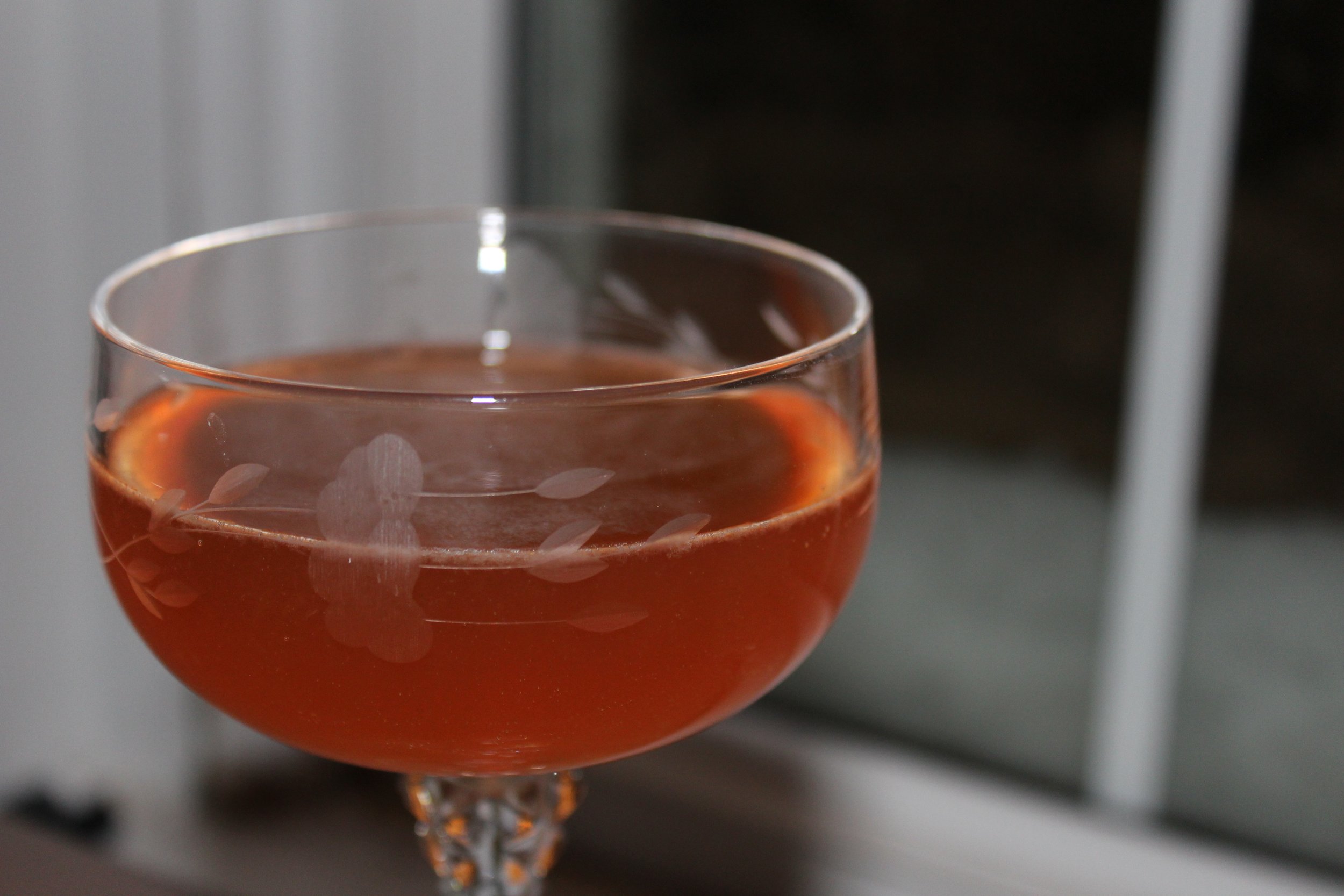How to Invent a Cocktail, Part VI of VI
(Recently, my friend Luke quietly published a book of poetry. It's called Abacus, and you can buy or download it here. I created a signature cocktail for the launch party, and because I sometimes get asked how I go about inventing a new cocktail, I thought you might like to see my thought process for this one. It's a longish story, so I've broken it up into six pieces, each of which will be a separate post and conclude with a recipe. Last week's chapter, "Trusting your gut, even when your gut just gave you every reason not to." can be found here.)
Chapter 6: Reaching a recipe by technique and tinkering.
Cognac ended up being a really good choice, and very little more was required besides mucking around with the proportions. I left the absinthe out, kept the Peychaud's in, traded the lemon twist for lemon juice, and held onto the kirschwasser as the star ingredient. I also added simple syrup, which deserves a story of its own.
For a long time, I thought of simple syrup as existing for the primary purpose of making drinks sweeter. And I suppose that's technically true, but it's not the only thing it does in a cocktail, and in many cases it isn't the most noticeable or the most important. Given how long I've been at this and the whole scientific research thing, it surprises me that it took me so long to appreciate the other benefits of simple syrup.
First of all, it affects the mouthfeel of the drink. Simple syrup adds viscosity, and it doesn't take a lot to make the drink as a whole feel richer and fuller-bodied. If you try using different concentrations of simple syrup (e.g., 2 parts sugar to 1 part water, instead of 1:1), you'll notice that the same volumes have different effects on the texture and feel of the drink. We often forget it, but cocktails are a tactile experience, too.
Second, sweetness affects your perception of other flavors present in the recipe. There's a theory that your body interprets the sugar as a sign that this is good, calorie-dense food, heightening your awareness of things like, for instance, the fruity flavors of raisin and cherry in this drink. It also seems to round out sourness, which may be why we add sugar to drinks that use citrus juice. We don't have a perfect, complete map of the changes in perceived flavor due to added sugar (at least, not that I know of), but if you find yourself working on a recipe that seems to be just a little bit off, and you aren't sure what's the matter, try adding a quarter of an ounce of simple syrup and see if that improves it.
That was the technique I used, and it paid off so well I ended up doubling it. After some tinkering with the other proportions, I settled on a recipe I was very happy with. The color ends up being a warm, slightly red- or orange-tinted amber, reminiscent of the old streetlights with sodium bulbs. That tipped the scales, and the drink officially became the Nightglow.
Nightglow
2 oz. Cognac
1/2 oz. Kirschwasser
1/2 oz. 1:1 Simple Syrup
1/4 oz. Fresh Lemon Juice
2 dashes Peychaud's Bitters
Shake all ingredients with ice. Strain into a chilled coupe glass and serve.
I designed this using Courvoisier, which is my go-to cocktail Cognac and makes this a damn fine drink. Most of the Cognacs you'll come across can be substituted for one another, but I find that Hennessy has a harsh overtone and too much wood, and so I try to avoid using it unless the recipe specifically benefits from those elements.
Having said that, at the launch party for Abacus, there was one bottle each of Hennessy and Courvoisier, and I decided I'd rather use a 50:50 blend in each drink than have 100% Courvoisier at the beginning of the night and 100% Hennessy at the end. I was very pleasantly surprised by the results. So if you're the sort of person who keeps multiple cocktail Cognacs in your house, you should give this a try with an ounce of each. (And we should be friends!)
That's all for this series! If you've got a reason to commission a cocktail recipe from me - whether it's for an important person in your life, a special occasion, or the hell of it - this is the kind of process I'll go through to make it. Email info@herzogcocktailschool.com if you'd like one of your very own!
